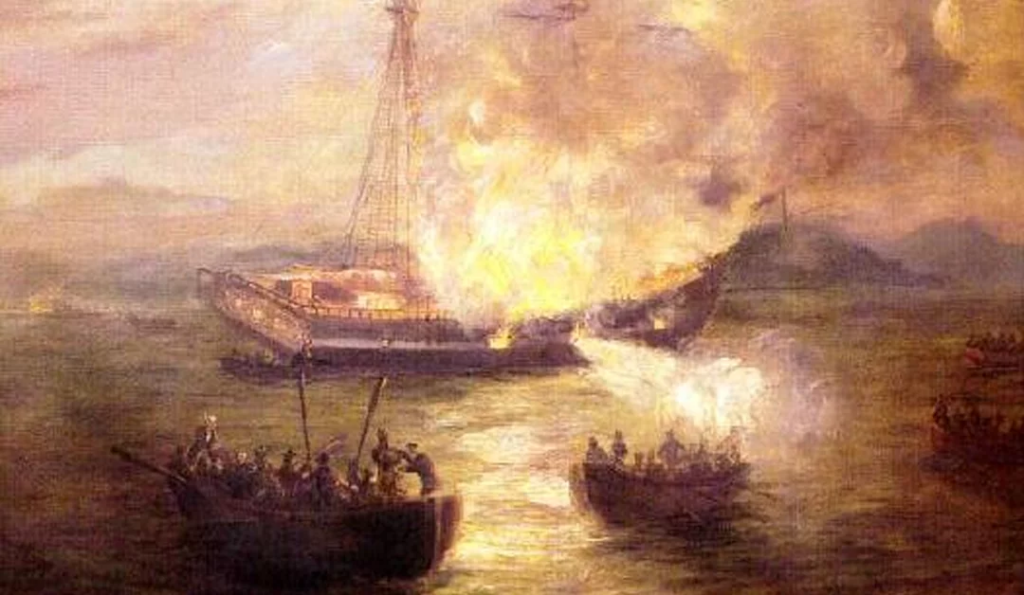Featured Image: American patriot Patrick Henry gives his famous ‘Give me liberty, or give me death’ speech in front of the Virginia Assembly, 1775
Part One
America’s Revolution began nearly 150 years before the Declaration of Independence. The first permanent colonies in what is now the United States were formed in the present state of Virginia in 1606 and the present state of Massachusetts in 1620.

The colonies were not burdened with governmental interference in their early development even though the English government had begun the transition to a Mercantilist Economy. This was to allow raw materials to be shipped to England for English manufacturers to make products for world trade.
England was in the throes of a trade war with the sea-faring nations of Continental Europe, namely the Dutch, French and Spanish interests thereby driving the English to establish trade laws that forced the American colonies to trade with the mother country. These restrictions were very detrimental to American trade with nations other than England, thus driving a thriving smuggling economy in the Colonies.
(Mercantilism, a system of government in which the government controlled most of the trade of England by funneling most all trade through the Customs Houses of the English Crown. This system worked to keep most of the gold and silver used in transactions in the pockets of the English merchants to the detriment of colonial trade forcing many Americans to accept English goods for payment of most American products and materials.)

The Colonies were allowed to trade with the nations of the world with minimal interference until the Acts of Trade and Navigation beginning in 1651. These acts marked the beginning of the transition by the English government into a more formal Mercantilist Economy with additional acts in 1660, 1663, 1673 and 1696 that remained in force for nearly two centuries.
The act of 1660 would specify some commodities, namely, tobacco, sugar, cotton, indigo, ginger and wood products that were used to create dyes that could only be shipped to England or other English colonial holdings. It also stated that all vessels of foreign registry were restricted from carrying American products and produce.
The act of 1663 required all European goods destined for American ports had to first pass through English ports and said goods had then be carried by ships of English or English colony registry. These regulations increased the cost of goods requiring the exemption of salt for the fisheries of New England and Newfoundland, wine from Madeira and the Azores, provisions, servants and horses from Scotland and Ireland. Another tenant of the act repealed the prohibition of export of species from England. (Species is a term for gold and silver coin and bullion.)

The act of 1670 imposed penalties of forfeiture of the vessel and its cargo if enumerated commodities were shipped without a bond or customs certificate, shipped to countries other than England, or unloaded sugar or enumerated commodities in any port except English ports. (It should be noted here that there were American export products that were exempt and could be shipped to European ports without penalty; among these was flour, fish, lumber, furs and animal skins.)
The Molasses Act of 1733 prohibited the importation of sugar from the French West Indies, forcing Americans to buy sugar from the British West Indies at a greater cost. It was replaced by the Sugar Act of 1764 causing even more unrest among American buyers.

The Navigation acts required all imports to the Colonies be either bought or resold from English merchants, greatly increasing the cost of goods imported into the American colonies. To say the acts had little to no effect on the American economy, the burning of the British Customs vessel Gaspee in 1772 would dispel any such notion.
Editors note: This is the first in a new series from Walt. If you enjoyed it, be sure to leave a comment and like the post.
